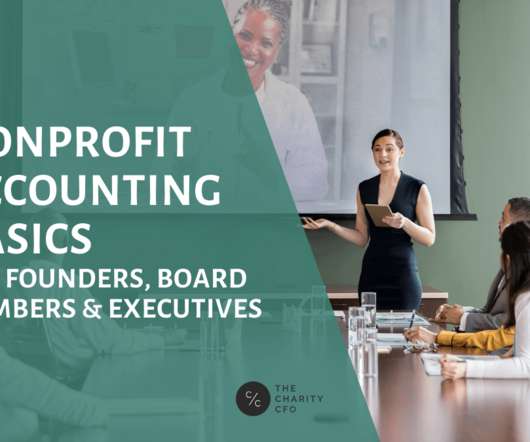Nonprofit Accounting Basics for Founders, Board Members & Executives
The Charity CFO
JANUARY 17, 2022
Your core financial reports, which we’ll look at below, exist to answer this one simple question– how much value has your organization created ? Don't hire the wrong accountant for your nonprofit! The #1 accounting mistake that nonprofits make is hiring the wrong people to help them. Unpaid bills (accounts payable).














Let's personalize your content